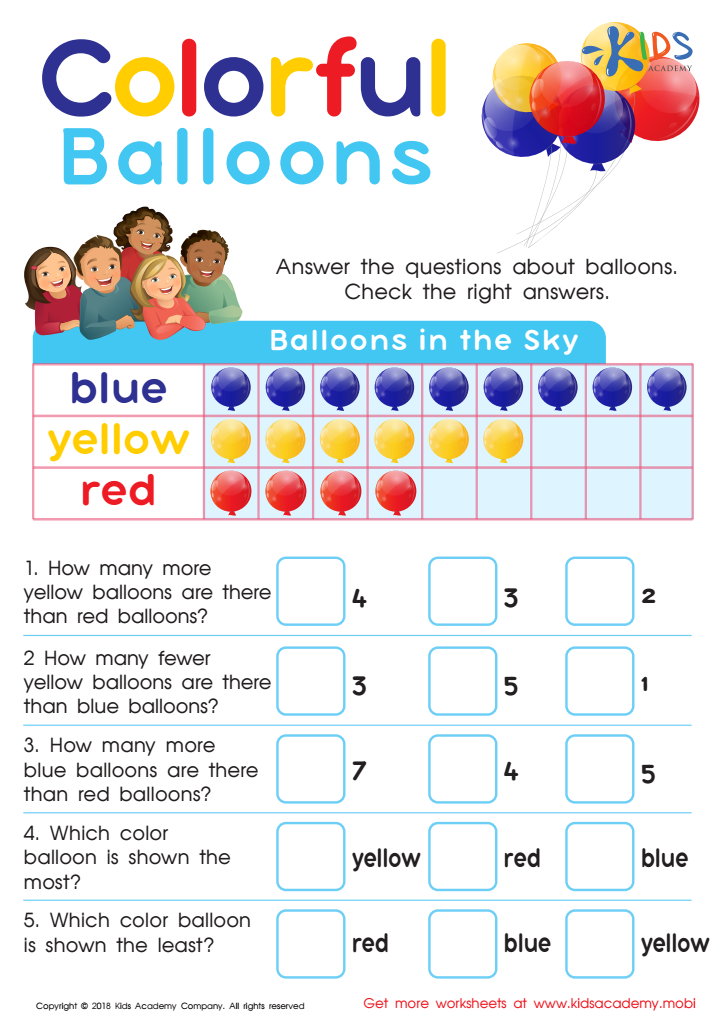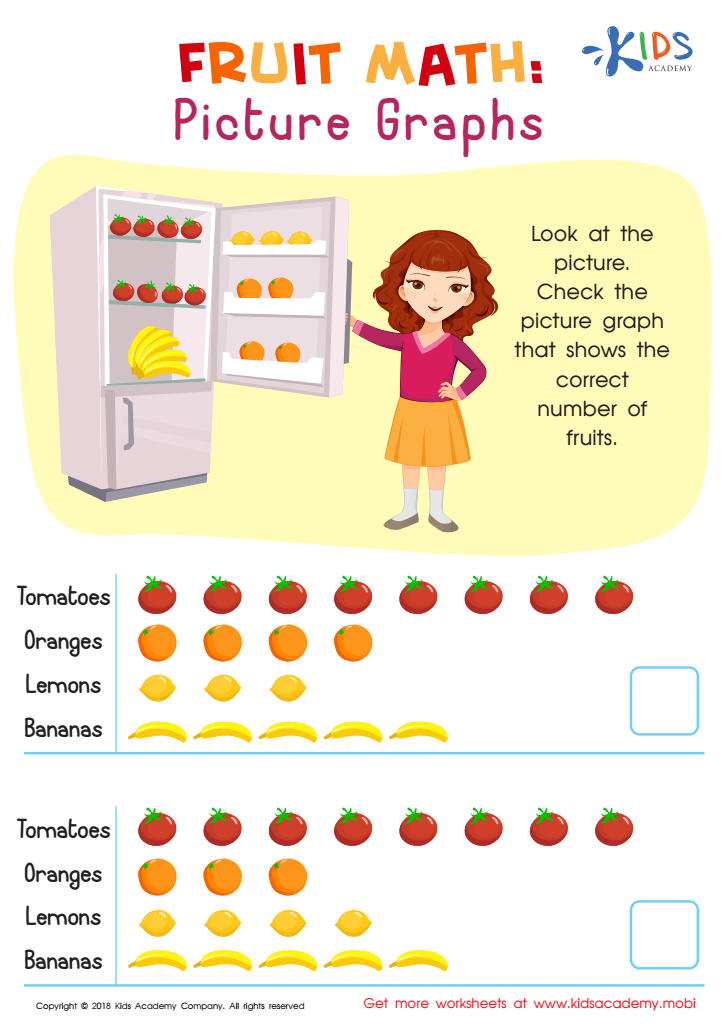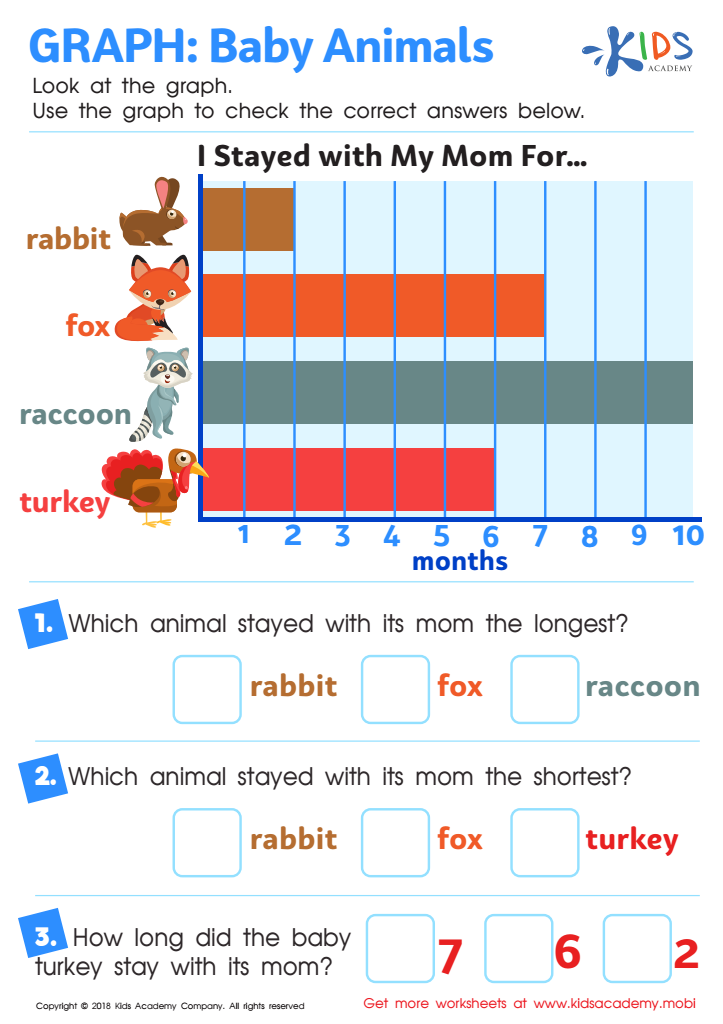Counting skills Graphs Worksheets for Ages 3-7
3 filtered results
-
From - To
Enhance your child's numeracy with our Counting Skills Graphs Worksheets for Ages 3-7! Tailored for young learners, these engaging worksheets make learning to count fun and interactive. By combining colorful graphs and simple counting exercises, children can develop crucial math skills and boost their confidence. Each worksheet is designed to be age-appropriate, providing a solid foundation in basic math concepts. Perfect for both classroom and home-based learning, our Counting Skills Graphs Worksheets are an excellent resource to support your child’s early math development. Dive into counting fun today and watch your child’s mathematical abilities flourish!


Picture Graphs: Colorful Balloons Worksheet


Fruit Math: Picture Graphs Worksheet


Graph: Baby Animals Worksheet
Counting skills and understanding graphs are foundational competencies for children aged 3-7 and are fundamental aspects of early childhood education that parents and teachers should prioritize. Counting develops numerical literacy, a crucial component of cognitive development. By learning to count, children grasp the concepts of quantity, order, and one-to-one correspondence, all of which form the basis for more complex mathematical operations that they will encounter as they progress in their education.
Graphs, on the other hand, introduce children to the idea of organizing and interpreting data. Simple graphing activities can help kids begin to comprehend concepts like comparison, categorization, and pattern recognition. Through engaging, age-appropriate activities like counting objects and creating picture graphs, children can visually and tangibly manipulate information, making abstract concepts more concrete and understandable.
These skills are not merely academic; they also promote critical thinking and problem-solving abilities. Early exposure to counting and graph comprehension can lead to a solid mathematical foundation, upon which children can build as they move on to higher levels of education. Additionally, instilling an interest in these areas early can make future learning experiences more enjoyable and less intimidating. Therefore, helping young learners develop these skills sets them up for lifelong success in both academics and everyday problem-solving situations.
 Assign to My Students
Assign to My Students















